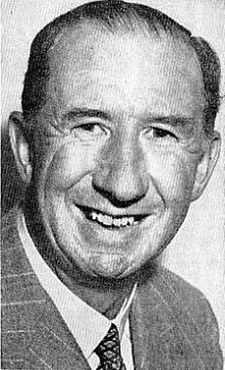Lonely Road
This book is a member of the special collection Special Collection: The Works of Nevil Shute (1899-1960)
Book Details
| Title: | Lonely Road | ||||||||||
| Author: |
| ||||||||||
| Published: | 1932 | ||||||||||
| Publisher: | William Heinemann Ltd. | ||||||||||
| Tags: | crime, fiction, mystery | ||||||||||
| Description: | The book begins with a note from the solicitor for Commander Malcolm Stevenson, who, we learn, has died recently (in about 1930), and we learn that this was written by him in the months before his death. Stevenson's narration begins with a series of seemingly unrelated vignettes, of which the only one that is readily sensible occurred during World War I, leading the last survivors of a sinking decoy ship, Stevenson managed to sink a German submarine, and with the British survivors wounded and with no way of taking prisoners, killed the Germans as they attempted to surrender. That incident still haunts him. Quite wealthy, he runs a flotilla of coastal steamers in a desultory but increasingly profitable way. He awakens, after having been taken, injured, from a damaged car, on a night on which he has been drinking heavily.--Wikipedia. [Suggest a different description.] |
||||||||||
| Downloads: | 458 | ||||||||||
| Pages: | 157  |
Author Bio for Norway, Nevil Shute

Shute's novels are written in a simple, highly readable style, with clearly delineated plot lines. Where there is a romantic element, sex is referred to only obliquely. Many of the stories are introduced by a narrator who is not a character in the story. The most common theme in Shute's novels is the dignity of work, spanning all classes, whether an Eastern European bar "hostess" (Ruined City) or brilliant boffin (No Highway).
Another recurrent theme is the bridging of social barriers such as class (Lonely Road and Landfall), race (The Chequer Board) or religion (Round the Bend). The Australian novels are individual hymns to that country, with subtle disparagement of the mores of the USA (Beyond the Black Stump) and overt antipathy towards the post-World War II socialist government of Shute's native Britain (The Far Country and In the Wet).
Shute lived a comfortable middle-class English life. His heroes tended to be middle class: solicitors, doctors, accountants, bank managers, engineers. Usually, like himself, they had enjoyed the privilege of university, not then within the purview of the lower classes. However (as in Trustee from the Toolroom), Shute valued the honest artisan and his social integrity and contributions to society more than the contributions of the upper classes.
Aviation and engineering provide the backdrop for many of Shute's novels. He identified how engineering, science and design could improve human life and more than once used the apparently anonymous epigram "It has been said an engineer is a man who can do for five shillings what any fool can do for a pound...."
Several of Shute's novels explore the boundary between accepted science and rational belief on the one hand, and mystical or paranormal possibilities, including reincarnation, on the other hand. Shute does this by including elements that can be considered fantasy or science fiction in novels are classified as mainstream. These are based in elements that would be considered religious, mystical, or psychic phenomena in the British vernacular when they were written. These include: Buddhist astrology and folk prophecy in "The Chequer Board"; the effective use of a ouija board in "No Highway"; a messiah figure in "Round the Bend"; and past and future lives with a psychic connection, near-future science fiction, and Aboriginal psychic powers in "In the Wet."--Wikipedia.
Available Formats
No book directory. Upload has not been completed.This book is in the public domain in Canada, and is made available to you DRM-free. You may do whatever you like with this book, but mostly we hope you will read it.
Here at FadedPage and our companion site Distributed Proofreaders Canada, we pride ourselves on producing the best ebooks you can find. Please tell us about any errors you have found in this book, or in the information on this page about this book.